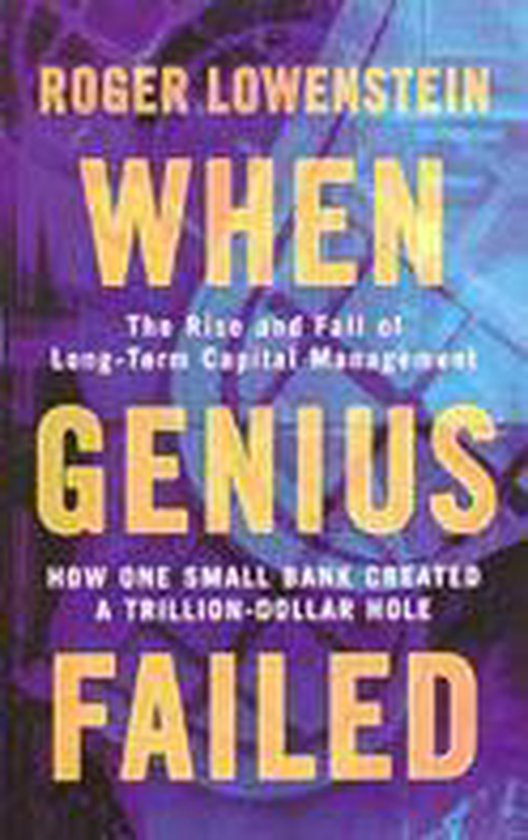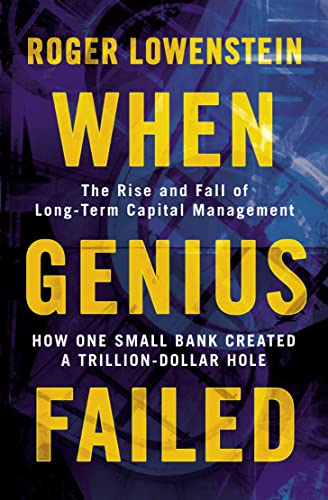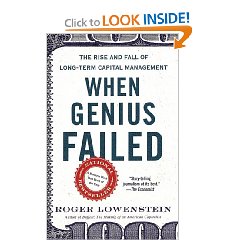

Haghani were young - in their 20's when they made billions for Salomon and in their early 30's by the time Long-Term Capitalīegan operating - and they had supreme confidence in themselves and their computer models.


The academics brought cachet to Long-Term, but it was the traders who dominated it. They believed markets were rational, and that historical patterns were bound to repeat. Options - which provide the right to buy shares of stock at a given price for a limited time - had been around for centuries, but their work provided the fundamental basis for valuing them. They would later share the Nobel in economic science for their work in developing the theory Of the team he had built at Salomon, and added two of the pioneers of financial theory: Myron S. Lowenstein reports that Meriwether might have been able to return to Salomon, but not to the top job he thought he deserved. Meriwether left Salomon after a scandal involving a government bond trader he supervised. Then the ideas were new to Wall Street, and the computer power necessary to build the models was just being harnessed. Nonetheless, it was a strategy that worked for years at Salomon Brothers, where John W. ''They had programmed the market for a cold predictability that it never had,'' Traded for more than it should relative to historical patterns - they would place bets that prices would get back into line. If those relationships got out of line - if one security They thought in mathematical terms and relied on computers to find historical relationships between related securities. It is a fair bet that the men behind Long-Term Capital never read Chesterton. ''Its exactitude is obvious, but its inexactitude is hidden its wildness lies ''It looks just a little more mathematical and regular than it is,'' Chesterton wrote. Chesterton, the English writer who called life ''a trap for logicians'' because it is almost, but not

In ''When Genius Failed,'' Roger Lowenstein, one of the best financial journalists there is, aptly quotes G. But most of all, it reflects the limitations of mathematical expertise in dealing with the human beings whose hopes and fears are always reflected in the gyrations of financial markets. He rise and fall of Long-Term Capital Management, the multibillion-dollar hedge fund, is a tale of genius and hubris, of sleeping regulators andįoolish banks. How a brilliant investment firm learned that when people panic the market turns irrational.


 0 kommentar(er)
0 kommentar(er)
